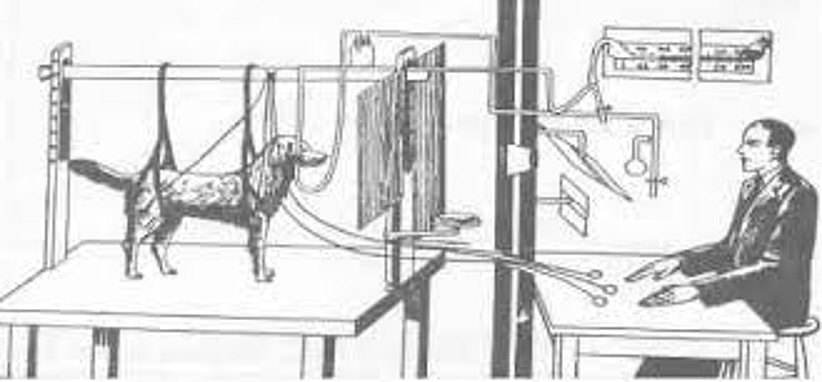 Ivan Petrovich Pavlov (1849-1936) was a renowned Russian psychologist and physiologist whose groundbreaking work has left an indelible mark on the field of science. A Nobel Prize laureate, he is best known for the theory of classical conditioning, which detailed how organisms learn and respond to their environment. Through his experiments on dogs, Pavlov revealed the foundations of associative learning, laying the groundwork for the modern understanding of behaviorism. This article delves into Pavlov’s life, his most famous, and his enduring influence on psychology and physiology.
Ivan Petrovich Pavlov (1849-1936) was a renowned Russian psychologist and physiologist whose groundbreaking work has left an indelible mark on the field of science. A Nobel Prize laureate, he is best known for the theory of classical conditioning, which detailed how organisms learn and respond to their environment. Through his experiments on dogs, Pavlov revealed the foundations of associative learning, laying the groundwork for the modern understanding of behaviorism. This article delves into Pavlov’s life, his most famous, and his enduring influence on psychology and physiology.
Born in Ryazan, Russia, Ivan Pavlov was initially guided into a religious career by his father, a priest. However, after reading the works of Darwin, Pavlov became captivated by the natural sciences (Todes, 2002). He received his M. from the University of St. Petersburg, where he was deeply engaged in the study of digestion and blood circulation. Pavlov’s dedication to research ultimately led him to establish his own laboratory at the Institute for Experimental Medicine in St. Petersburg, Russia, in 1890.
I.P. Pavlov’s enduring contributions to psychology and physiology are rooted in his extensive research on dogs. In his experiments, Pavlov was able to condition dogs to associate specific sounds, such as a metronome or a bell, with the presentation of food (Pavlov, 1927). Eventually, the mere sound of the bell would cause the dogs to salivate in anticipation of the food, even when no food was presented. This discovery was groundbreaking at the time, showing that organisms could be conditioned to associate a neutral stimulus with a meaningful outcome, thus demonstrating the process of classical conditioning.
Pavlov’s work on classical conditioning expanded beyond that of the original dog experiments. He identified several principles that govern the process, including acquisition, extinction, spontaneous recovery, generalization, and discrimination (Pavlov, 1927). These concepts have greatly influenced our understanding of conditioned learning and continue to guide research in various areas of psychology, including memory and behavior modification.
Pavlov’s impact on the field of psychology is particularly evident in behaviorism, a school of thought that focuses on the relationship between environmental stimuli and organisms’ observable responses. Behaviorists like John B. Watson and B.F. Skinner built upon Pavlov’s work to investigate the principles of learning (Schunk, 2012). Skinner, for example, extended Pavlov’s classical conditioning research by developing the concept of operant conditioning, a method of learning that occurs through rewards and punishments for voluntary behavior.
Pavlov’s work also had a significant impact on the field of physiology, specifically the study of the nervous system. Pavlov believed that classical conditioning was just one example of an organism’s adaptation to its environment and that the same principles could be applied to other reflexive responses (Todes, 2002). He pioneered research on the central and peripheral nervous systems, with a particular focus on neural inhibition and excitation. To this day, neuroscientists continue to study the mechanisms by which neurons communicate, using Pavlov’s work as a foundation.
In 1904, I.P. Pavlov received the Nobel Prize in Physiology or Medicine for his work on the physiology of digestion, a testament to the scientific community’s recognition of his contributions (Nobelprize.org, 2022). He continued to conduct research until his death in 1936, leaving behind a profound legacy in both psychology and physiology. His observations and experiments on classical conditioning have paved the way for countless subsequent researchers to explore the intricacies of both the brain and behavior.
Conclusion:
Ivan Petrovich Pavlov was a groundbreaking psychologist and physiologist whose work left an indelible mark on the fields of psychology and physiology. From the development of classical conditioning to his Nobel Prize-winning research on digestion, Pavlov’s work has laid the foundation for more understanding of the complex interplay between the nervous system and behavior. Today, nearly a century after his death, Pavlov’s contributions continue to inform and inspire researchers worldwide in their quest to unlock the mysteries of the mind and body.
References:
1. Nobelprize.org. (2022). Ivan Pavlov – Facts. Retrieved from https://www.nobelprize.org/prizes/medicine/1904/pavlov/facts/)
2. Pavlov, I. P. (1927). Conditioned Reflexes. Oxford University Press.
3. Schunk, D. H. (2012). Learning Theories: An Educational Perspective, Sixth Edition. Pearson.
4. Todes, D. P. (2002). Pavlov’s Physiology Factory: Experiment, Interpretation, Laboratory Enterprise. The Johns Hopkins University Press.
5. Windholz, G. (1997). Ivan P. Pavlov: An Overview of His Life and Psychological Work. American Psychologist, 52(9), 941-946.







